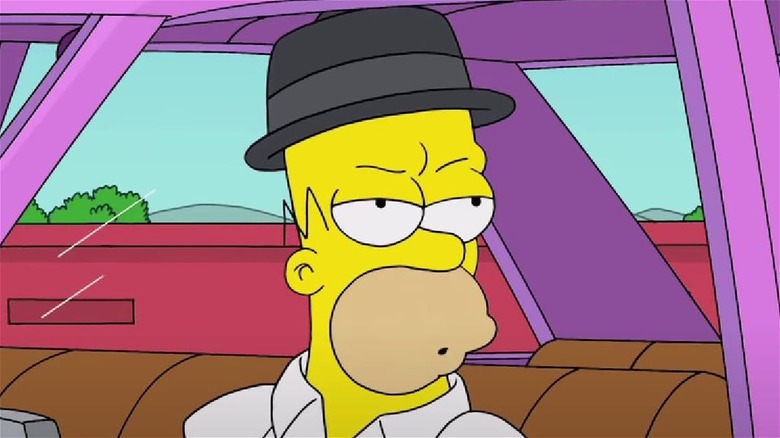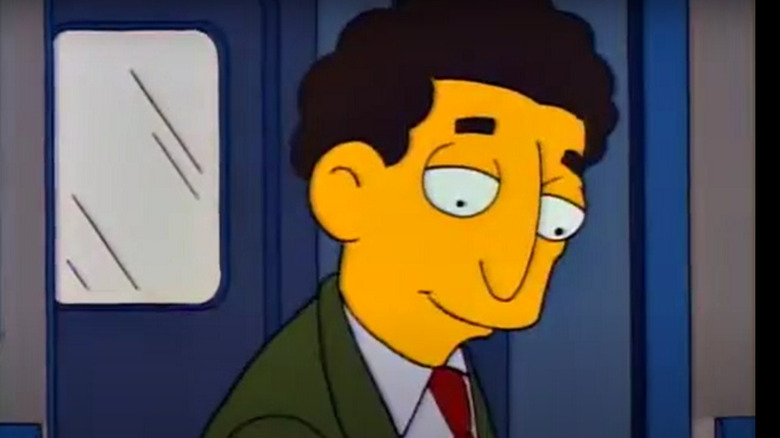The One Rule Every Simpsons Guest Star Has To Follow
"The Simpsons" is an institution. The show has been running for over thirty years on Fox and during that time, everyone from Britney Spears to Stephen Hawkings has appeared to lend their vocal talents. There have been highlights, such as Meryl Streep as the wicked Jessica Lovejoy, and lowlights, like Lady Gaga causing a commotion in "Lisa Goes Gaga." There has even been a whole list of actors who famously turned down the opportunity to be on the show. Either way, the series' notable guests have been a part of its DNA ever since Marcia Wallace was billed as the show's first guest star (she would eventually become a regular cast member as the inimitable Edna Krabappel, Bart's teacher) all the way back in Season 1.
But there are, believe it or not, rules for guests who want to appear on the program. Whether the performers are voicing themselves or a new original character, they have to observe one special rule. What requirement must every guest voice on "The Simpsons" follow?
There are no nom de plumes allowed
Per series creator Matt Groening, no actor, athlete, musician, or any other public figure may use a pseudonym if they wish to appear on the show. "If you're willing to do 'The Simpsons,'" he told The New York Times in 1993, "you can't be ashamed of it."
There have been a few exceptions to this rule, of course, over the show's many seasons. There are two notable incidents of famous guest performers being allowed to use pseudonyms: Singer/actor Michael Jackson used the name "John Jay Smith" when he guest-starred on the episode "Stark Raving Dad," and actor Dustin Hoffman, the voice of Lisa's beloved teacher Mr. Bergstrom, went under the name "Sam Etic" in "Lisa's Substitute." And while some performers have been eager to appear on the show, many other public figures — including all of the living US presidents — have either rejected the notion of a guest star stint or simply never made it into the booth.

